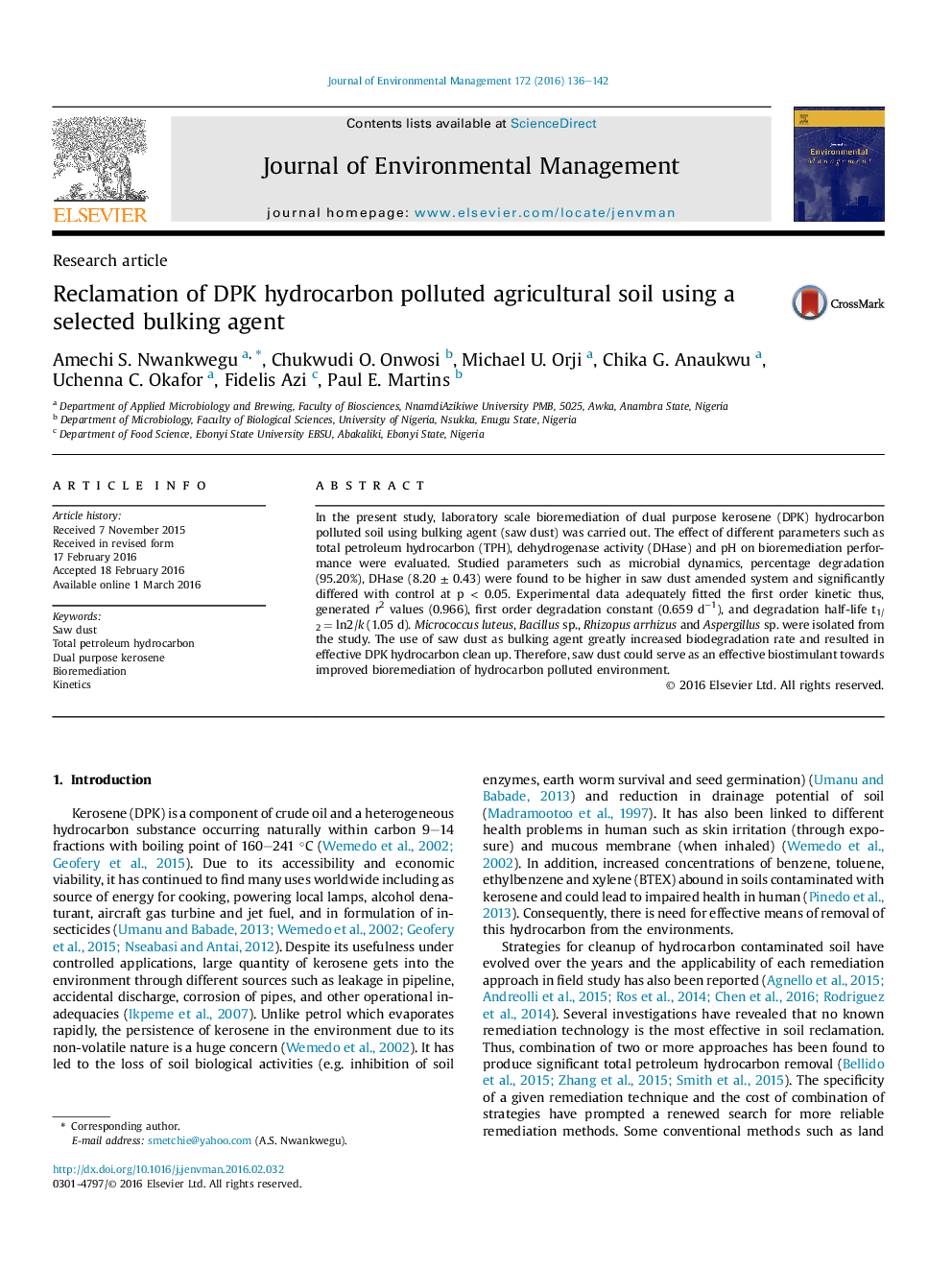| Article ID | Journal | Published Year | Pages | File Type |
|---|---|---|---|---|
| 7480621 | Journal of Environmental Management | 2016 | 7 Pages |
Abstract
In the present study, laboratory scale bioremediation of dual purpose kerosene (DPK) hydrocarbon polluted soil using bulking agent (saw dust) was carried out. The effect of different parameters such as total petroleum hydrocarbon (TPH), dehydrogenase activity (DHase) and pH on bioremediation performance were evaluated. Studied parameters such as microbial dynamics, percentage degradation (95.20%), DHase (8.20 ± 0.43) were found to be higher in saw dust amended system and significantly differed with control at p < 0.05. Experimental data adequately fitted the first order kinetic thus, generated r2 values (0.966), first order degradation constant (0.659 dâ1), and degradation half-life t1/2 = ln2/k (1.05 d). Micrococcus luteus, Bacillus sp., Rhizopus arrhizus and Aspergillus sp. were isolated from the study. The use of saw dust as bulking agent greatly increased biodegradation rate and resulted in effective DPK hydrocarbon clean up. Therefore, saw dust could serve as an effective biostimulant towards improved bioremediation of hydrocarbon polluted environment.
Related Topics
Physical Sciences and Engineering
Energy
Renewable Energy, Sustainability and the Environment
Authors
Amechi S. Nwankwegu, Chukwudi O. Onwosi, Michael U. Orji, Chika G. Anaukwu, Uchenna C. Okafor, Fidelis Azi, Paul E. Martins,
